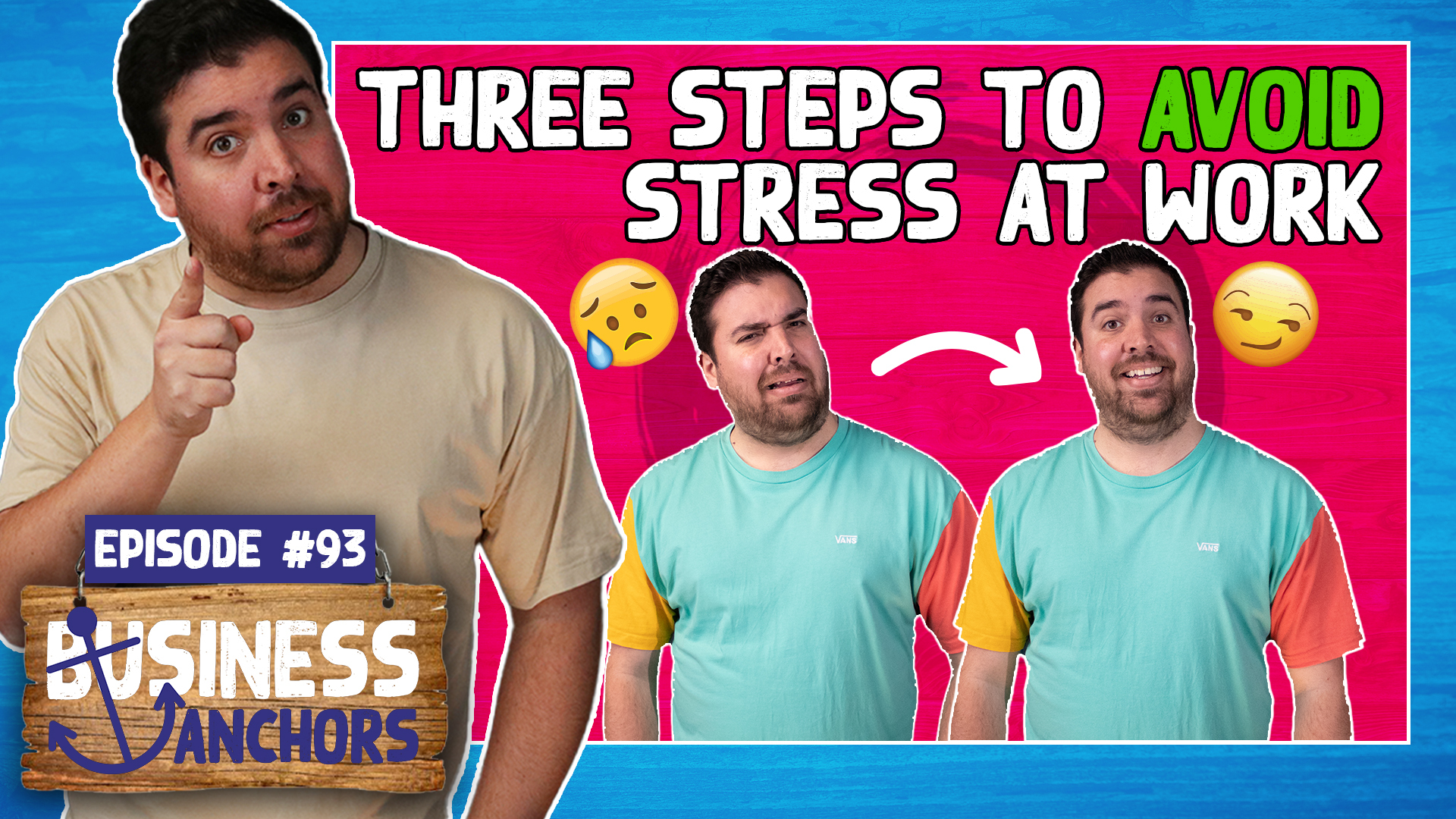Want to know how to deal with stress at work? Maybe you’re looking for creative ways to reduce stress at work? You’re in the right place.
We (especially Lloyd) have had lots of experience in this area, from managing the safety of thousands of children whilst on trips across the country, to managing a car rental branch of 250+ cars & 10 staff whilst only being in a job for 7 months.
In this episode you’ll hear about our meltdowns and the lessons we’ve learnt along the way whilst learning how to deal with stress at work.

0:00 Pat
Hi, Pat the podcast that it’s here. What can you do to help manage your stress? Well, today’s episode puts Lloyd in the hot seat, reminiscing on some of his more stressful past employment experiences.
00:13 Dan
How did you deal with this situation when that young boy turned up naked with a bottle of vodka at one of the host families’ doorsteps that you’re supposed to be responsible for Lloyd?
00:22 Lloyd
I was like ‘I’m gonna lose my job’.
00:24 Pat
Lloyd also shares the bulletproof steps anyone can take that helped him become the calmest person in England. Like I’m less stressed than 90% of people. Yeah, monitoring my heart rate. Right. Let’s get stuck in. This is episode 93 of the business anchors podcast.
00:53 Dan
Lloyd, how do you deal with high-pressure stressful situations at work?
00:59 Lloyd
Well, firstly, I’ve just got to get out of it. Because you’ve never just said, Lloyd. You know, I just asked myself.
01:07 Dan
I was just trying something new.
01:09 Lloyd
Okay, I liked it. Just threw me off of it. Okay. So how do you deal with high-pressure situations, stressful situations? Because.
01:15 Dan
I think just, to give us context, I think you’re one of the people I know that feels like you’re the least stressed and that you deal with situations like this quite well. So I think the listeners are going to gain a lot of value from it. And I’m genuinely intrigued. How do you do it? Because I want to learn from it.
01:32 Lloyd
I agree without blowing my own trumpet too much. I do think I have over the years kind of developed ways of managing this. Well, I think I am good at it now.
01:48 Dan
And I did notice, you know, you’ve got your new Garmin watch that tells you stuff you did say the other day that it beeped and told you that you’re the least stressed you’ve ever been since wearing it. Yes.
Yeah, it did give me a notification telling me I wasn’t stressed. I looked at it. So it records, the like slight differences between the timing of your heartbeat if you’re very consistent. Your heartbeat is very consistent over time. There’s less stress on your body and stuff. Whereas if it’s kind of a bit all over the place, and there are slight differences, means your body is stressed and that kind of right. And yeah, just reading up, I’m less stressed than like 90% of people. Yeah, from monitoring my heart rate.
I do think that to give a bit of backstory, you have had some quite stressful jobs in the past that I think, have probably helped you develop your stress dealing with abilities.
02:21 Lloyd
Oh, I used I’ve had stressful times in my life so far. Most of them were in my kind of the early 20s when I had when I was given roles with quite big responsibilities and not necessarily training to deal with things. So I worked for the English language school where we’d have hundreds of children coming over to learn English and various places around the UK. I was kind of responsible for their welfare for all of their time outside of the classroom, in places all over the UK, so I can’t be there. I’ve just got to put things in place. You know, we’ve had we had missing children, you know, imagine someone’s going to school trip some 11 year old and then yeah, they’re just in London somewhere now that no one knows where they are.
03:24 Dan
And also, how did you deal with the situation when that young boy turned up naked with a bottle of vodka at someone’s one of their host families’ doorstep that you were supposed to be responsible for Lloyd? Yeah. How did that go?
I think I dealt with that quite calmly spoken, I dont know if we’ve spoken about this in the podcast before.
I think we have ages ago.
03:41 Lloyd
I had an emergency phone. So obviously, if there’s an emergency, someone calls the phone. And I had a call from a family that we’re hosting this child because they kind of stay with English families saying. He’s come in, he was like 14, or something coming in completely naked. I mean, got his socks on. It’s six in the morning, he has his bottle of vodka. And I don’t know what’s happened to him. He’s got no clothes.
04:14 Dan
What went on in your mind at that point?
A million things went right then it’s like, I dont wanna lose my job. But there was so much going on in my head. I was trying to react calmly and like speak to this. I think it was the father that called me and said okay, well, this is very serious. And please make sure he’s safe at home and stuff. We need to be safe. And that sort of thing. Right? Well, we’ll send someone over and I said, I’m going to call the police because I think something’s happened. And the reason why Dan’s laughing through the whole of this is that it was one of my colleagues pretending to be a father. And it was all made up. So that’s why Dan is laughing.
Brilliant joke. It was brilliant.
05:04 Lloyd
Just you know, when you got so much responsibility, you’re so stressed. Someone tells you naked kids come in, at 6 in the morning and you think something terrible’s happened. Yeah, so that was a fake, stressful situation. But I also like there was the Kazakhstan mafia just wandered into one of the schools at some point because they were parents of the children there.
And I kind of liked it because there are all these things to look after the children. Just saying, like, it’s stupid. It’s not, it shouldn’t be done for their welfare. It’s like, you know, parents can’t just wander in and do what they want in the school, because we don’t know who they are.
Yeah. And I was like, Oh, guys, I know you’ve come in these massive, like Rolls Royce vehicles, like eight of you, and you’re just walking in to see a kid. But actually, you can’t just turn up and just do what you want. And he was just like, yes and saying, I’m not gonna listen to anything you say. And then he was just sort of asking how much he needed to pay to do what he wanted. And I also can’t accept bribes.
So yeah, there were lots of stressful situations with that. And I think because of those, just, I think part of how you learn to deal with stressful situations is being in them. Yeah. So yeah, you know, at the end of that job am in a disciplinary with my boss. And so part of it, part of what I’m going to try and teach people is don’t react emotionally.
Right? So he was saying stuff to me. It was rubbish. I didn’t like it. So I said to him, this is a disciplinary thing with like, I had, I had like a, what do they call it? Someone that was like a colleague of mine to represent me and make sure it was fair.
06:08 Dan
A lawyer?
06:10 Lloyd
And then he had someone represent him.
06:20 Dan
Like a witness?
06:53 Lloyd
And there was someone like running the disciplinary, it was all very formal. And I just said, I’m going to leave before I say something I regret to you. Let’s say Tim. And yeah, just walked out. They said Come on, you can’t walkout. I’m walking out. Just left. But I think that is a good decision because I would have just told him so yeah.
07:13 Dan
And also, I mean, growing up you are you have been quite an emotional boy.
07:20 Lloyd
I’m hugely emotional.
07:22 Dan
In your teenage years you were, you know, those hormones.
07:26 Lloyd
They did something to me, I laugh hysterically and cry hysterically most days. So yeah, you’re right, though. It has been a journey for me to not lead with emotion, which is a big thing that I’m going to talk about.
07:42 Dan
So shall we get into those steps? Some of those steps? Have you got some practical tips or steps?
07:50 Lloyd
Yeah, let’s not call them steps you those steps. I do just I do advice. Intelligent rambling. There are steps. So the first thing if you’re in a stressful situation at work, I would say exactly what just been saying. Don’t react with emotion. So if you’re feeling so something stressful has happened. You’re the manager of this team. And they just haven’t done what they’re supposed to do. And now your boss is saying your shit? So stressful? Oh, I don’t know what to do.
If you’re emotionally led with your thoughts thinking ‘oh fudging Tim’ hasn’t done his job, because he’s, he’s an idiot. And he’s been out drinking. He’s hungover. I hate him. And Susan, she’s even worse. Oh, I hate it when she speaks to me like this. And it frustrates me. So all these negative emotions bring out things that don’t necessarily have anything to do with how you would resolve the situation. If you’re thinking like that, take a step back, step away from the situation and come back when your emotions have died down. And you can think with your logical brain rather than your emotional brain.
09:05 Dan
The Chimp Paradox is a great book that talks all about this.
09:09 Lloyd
We’ve mentioned it quite a few times. So I would read that it talks about the chimp inside all of us that emotional, emotional lead thing of like, you’ve done something bad to me that’s affected me. So I’m going to do something bad for you. And obviously, that can lead to conflict within the business. If you just, you know, you say something because you’re angry like and you Susan, you never do what you’re supposed to do. And actually, Susan does 90% of the time, and you’re just trying to make her feel bad.
That’s always going to end in the long term badly. So first thing, don’t be emotionally led with the decisions and if you can’t get out of that, step away, step back, whatever you need to do. So if you’re in an office, go for a walk, let’s let things calm down. Try and think logically. If you’re on a call talking about something, try and move on to something and say let’s come back to this and deal with this at another time, however, you can sort of step away or move on from that.
10:03 Dan
That was some good intelligent ramblings. Lloyd.
10:05 Lloyd
Thank you.
10:06 Dan
What’s the next?
So, the next thing is to prioritise. So if you’re in a stressful situation, it’s normal that I need to achieve something. And I’m worried that it’s, it’s not possible or it’s going to be too challenging or something’s gone wrong. And I can’t do this. And taking that step back, taking the emotion away thinking logically, once you’re in that logical kind of mindset, then it’s you need to have a plan.
So you can’t just think, Oh, well, this is too challenging, or, Oh, Susan won’t do this, you think how can I get closer to the point I need to be so and write down steps. And even if you think this is too much, it doesn’t matter. Right down the steps, it might be 76 steps that need to be taken to get to where you need to get to. But until you map out those steps, you’ve got no chance of getting out of the stressful situation.
There’s a really good kind of diagram, the urgent, important diagram that our accountants shared with me once if you’re interested in learning how to prioritise things, just Google, urgent, important diagram. And it’s like a diagram that shows you what to focus on.
11:00 Lloyd
Because there may be steps you need to take almost immediately. So it might be, you know, our clients on the phone, they’re not happy with this. And you’ve got at the stage of thinking Tim and Susan are rubbish, and they have done their job. You think, actually, okay, I need to have a meeting with Tim and Susan, we just need to work out exactly what’s happened.
And talk about our next steps. I need to get Susan to call the client, just apologies for a bit of a holding call to say, very sorry, managed situation, we’re going to now go back and work out what we need to do. Then I need Tim to contact this person and see if they’re available next week, too.
So there are all these steps. But there are also potentially steps after you’ve got out of that stressful situation that you still need to note down that we’ve done at a later date. So we need to do a training session with Tim and Susan, to make sure that this never happens, again, preventative actions in the future. So there are the immediate things right. How do we deal with this, they’ve called to apologise they’ve said that we’re planning how to rectify it, blah, blah, that sort of thing.
And then it’s the more long term. So once we’ve got out of this stressful situation, in two weeks, we’re going to have a two-hour thing about how to plan these projects. So you never get to this.
12:15 Dan
I think this is something that you’re good at that I haven’t noticed in other scenarios much as we’ve had a stressful situation, we’ve dealt with it. But rather than just being like, let’s put that to bed is more thinking, what are the things we can do to prevent that in the future. And that’s just as important as putting the fire out, preventing the fire in the future.
Often I find, once you’ve got to this stage, you have the plan of the immediate action and the action you need to take in the future to prevent it. It’s all scheduled, even though the situation hasn’t been rectified, yet the stress is gone. Because you know what needs to happen, and that people are going to take that action to get out of the situation. So you’re not out of the stressful situation yet. But you don’t feel stressed because you know exactly what the plan is. Because the stress comes from not knowing how you know the worry of what if that doesn’t work out? Do you know what we’re going to do? So yeah, if you can see that, even if you haven’t done the work, that reduces a really big part of the stress.
Nice. So prioritizing Yeah, I like it.
13:35 Lloyd
Prioritise and map out the plan.
And then I think my final kind of the key point of how to deal with these stressful situations, is accepting that you can only do your best and you can only do what you can do. So quite often to say we’ve mapped out this and you’re thinking, well, that’s still not good enough. At that point, if you are doing or have done absolutely everything you can to rectify a situation. And it’s still not, it still doesn’t get you to a place that you need to be.
There’s absolutely no point stressing or worrying about it. Because you’ve done everything in your power to then it gets to a point where you have to accept. I’ve done everything I can. And there’s absolutely no value in me stressing about this now. That’s quite difficult. Let’s be honest, not everything we do in our work life ends in a massive when there are failures along the way. So it’s much better to accept a failure and say, I’ve done everything I can. But actually, we’ve got to a point the clients are a bit happier, but they’re still there’s still a risk, they might not extend their contract.
If you’ve done absolutely everything you can and you’re honest with yourself, that’s the point to going well, we’ve done everything we can. I need to focus on positive things now and doing the things I need to do to improve things rather than worrying about this thing that I have no control over.
14:51 Dan
I think one of the most valuable points out of all those steps that I’m getting from that is having a plan to get out of the stress and prevent it in the future. And that can take the stress away. Because even though you’re still in that situation, having that plan, like, I’ve never thought of it like that, because I think sometimes if it’s not solved, I’m still stressed, whereas it can not be solved. But if you’ve got a plan to solve it, then.
15:15 Lloyd
Some things take months to solve. And, in reality, if you don’t have this kind of mindset, you’re just accepting, you’ll be stressed for months until you see that it’s completely resolved. Whereas if you map out a plan, and you know that everything’s being done, you can there’s no reason to stress anymore, you can see how it’s going to be resolved. Or you can see how it’s not going to be resolved. And you can accept that and move on.
15:39 Dan
What situations are you most stressed in at work?
15:41 Lloyd
Mine, I mean I’m very rarely stressed. Mine are if we’ve made you know, our team, me personally, have made a mistake and let someone down. I get stressed before I get to the point where I’ve prioritised and mapped out how to get out of the situation. So there’s now it’s much more reduced. So that might be 20 minutes where I’m like, oh, man, we mucked this thing. Like I’m saying you don’t do everything right.
You’re not perfect. It’s not won all the time or we mucked up this thing for the client. I said we’d give them an update on Wednesday, and it’s Thursday afternoon, we’ve let them down and not done what we said we do. And for our business, that’s a really big thing. That’s not how we work.
And it’s that stress of the five minutes where I go, Okay, right, I need to just work out what I need to do to make this better, I need to contact the client straight away, I need to speak to this person in the team to get that update, I need to do this oh when I’m going to map, I’m going to put the thing in two months of the calendar to contact that client to see if I can take them out for lunch to catch up and things to try and build that relationship. So it’s before I make that plan. That’s when I’m stressed basically, when we’ve mucked up, yes, because everyone mucks up sometimes.
16:55 Dan
I agree with that. I think that’s the same with me. So to summarise those steps, it’s not leading with emotion. Then it’s the prioritise and make an action plan to put out the fire?
17:08 Lloyd
So don’t lead with emotion. If you’ve got emotionally led thinking gets out of the situation. So take a step back. So maybe you need step two, which is to take a step back, you might not you might be brilliant, then prioritise your actions. So is there anything that has to be done immediately? And then you can take care of that. Map out the plan that’s longer term. And then except that you can only do what you can do. And there’s no point worrying or stressing about stuff, you have no control over.
17:40 Dan
Really useful steps.
17:41 Lloyd
You will be happy and not stressed.
17:43 Dan
Genuinely, I’ve learned a lot from that.
17:46 Lloyd
Oh, good. Yeah. Oh, thanks, mate. Hopefully, the business anchors will too. And I think as I said, I, I genuinely think over time. Like I know how I feel and how I’m not stressed. And I remember how stressed I was in previous roles and previously in the business.
And I do think if people can take those steps, it’s an absolute game-changer not only for the business, so you’re doing the best job you can do. But for you. It’s so much better not feeling even when things are going wrong not to be feeling stressed. And horrible. Yeah, it’s lovely, if you can be content and more level in and outside of work. It’s a lovely feeling. Some fluffy stuff in there.
Yeah. can’t all be practical, can it?
Exactly. Got to have some fluffy Lloyd stuff.
18:31 Dan
Cool. Thanks, Lloyd. Thanks for sharing those tips. That’s useful. Is there anything else you want to add to this episode?
18:36 Lloyd
No. Well, if anyone wants to discuss with me or any tips on how I’ve reduced stress or wants any more information, let me know because like I said, it’s been so good for me. If you want any help, give me a shout.
18:48 Dan
Cool. And we look forward to seeing you and yours next weekend.
18:53 Lloyd
Yeah, not gonna stress about it. We’ll just be there.
18:55 Dan
We’ll see you then.
Hopefully this has been useful and helped to understand how to deal with stress at work. If you have any more questions or want to know how Knowlton can support you Start A Conversation.




























We've always wondered if anyone actually looks at the footer on websites. We don't think many people do. So if you're reading this... You're special.
Knowlton HQ, Unit 62 Maple Leaf, Manston Business Park, Ramsgate, Kent CT12 5GD
© 2024 Knowlton | UK. All Rights Reserved.